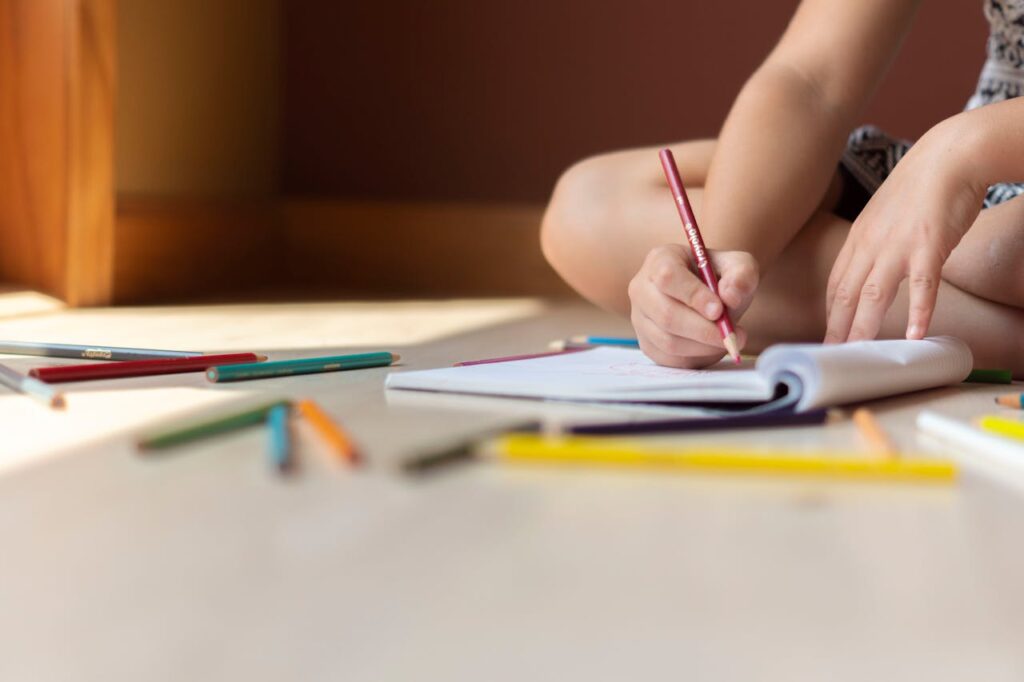As the calendar flips towards the school year, the excitement and anticipation in your household might be palpable. Preparing your child for their first day of school is both thrilling and perhaps a tad nerve-wracking. But fear not, there are several ways you can ensure your little one is ready to take on this new adventure with confidence and curiosity.
Establish a Consistent Routine
One of the most effective ways to prepare your child for school is by establishing a consistent daily routine. Start by setting regular wake-up and bedtime schedules to help your child get accustomed to the structure of the school day. Incorporate activities such as reading, playtime, and mealtimes into their daily routine to mimic the schedule they’ll experience at school.
Consistency in routine creates a sense of predictability and security for your child, reducing any anxiety they may feel about the upcoming transition to school. Knowing what to expect throughout the day builds their confidence and independence, preparing them to manage their time and responsibilities effectively in a classroom setting.
Create a Special School Countdown
Build excitement for the upcoming school year by creating a special countdown calendar or ritual. Each day, mark off the days until the first day of school with a fun activity or small celebration. This not only helps your child anticipate the big day but also makes the transition feel like a festive occasion rather than a daunting one.
Consider including special treats or surprises along the way, such as a small toy or a favourite snack, to make the countdown even more memorable. You could also involve other family members or friends in the countdown activities to share in the excitement and support your child’s anticipation.

Foster Social Skills Through Playdates and Group Activities
Socialisation is a crucial aspect of the school experience. You can facilitate your child’s social skills by arranging playdates with peers of similar age or asking them to participate in group activities such as sports teams or art classes. These interactions provide valuable opportunities for your child to learn how to share, communicate, and cooperate with their peers.
Your child is also more likely to develop empathy and build confidence in their social abilities when engaged in structured group settings. Playdates, whether at home or in supervised environments, encourage your child to navigate social interactions independently while learning important skills such as taking turns, resolving conflicts, and respecting others’ boundaries.
Consider Enrolling in Preschool for Early School Readiness
Preschool in Joondalup, like much of Australia, isn’t mandatory, but it can significantly benefit your child’s preparation for formal schooling. Preschool provides a structured environment where children learn important social, emotional, and cognitive skills that are crucial for their development.
In preschool, children have the opportunity to interact with peers, learn to share, take turns, and communicate effectively. These early social interactions help build confidence and independence, preparing them for the challenges of primary school.
Involve Them in Back-to-School Preparations
Make back-to-school preparations a collaborative effort by involving your child in the process. Take them shopping for school supplies and let them choose items they’re excited about, such as a colourful backpack or a fun pencil case.
Allow them to select their outfit for the first day of school and involve them in labelling their belongings with their name. By involving your child in these exciting preparations, you’ll help them feel invested in the upcoming school experience and ease any apprehension they may have.
Encourage Independence and Problem-Solving Skills
School is not just about academics; it’s also about fostering independence and problem-solving skills. Encourage your child to tackle simple tasks on their own, such as dressing themselves, packing their school bag, or tidying up their toys.
Praise their efforts and offer gentle guidance when needed, empowering them to take ownership of their actions and decisions. Teaching problem-solving skills will help your child navigate challenges they encounter both inside and outside the classroom.
Cultivate Mindfulness and Emotional Intelligence
Introduce simple mindfulness techniques such as deep breathing or guided imagery to help your child manage their emotions and reduce stress. Encourage open communication about feelings and teach them to express themselves constructively.
You should create a safe and supportive environment where your child feels comfortable expressing their emotions, whether they are excited, nervous, frustrated, or sad. Listen actively and remain empathetic to their concerns, validating their feelings while offering reassurance and guidance. This helps build trust and strengthens their emotional resilience, enabling them to navigate interpersonal relationships and classroom dynamics more effectively.
Introduce Basic Literacy and Numeracy Concepts Through Play
While formal education begins at school, you can lay the groundwork for your child’s learning journey at home. Introduce basic literacy and numeracy concepts through playful activities such as reading bedtime stories, counting objects during playtime, or singing nursery rhymes together.
Make learning fun and interactive to spark your child’s curiosity and enthusiasm for knowledge. You don’t have to follow a rigid curriculum or set formal lessons. Instead, try to integrate these concepts seamlessly into everyday activities and play. This will make it easier to make your child interested in the subjects and concepts you want to introduce through play.
Watch Cartoons on Starting School
Watching cartoons about starting school can be an enjoyable and effective way to prepare your child for this new chapter in their life. Look for age-appropriate shows or episodes that focus on school-related themes, such as making friends, coping with nerves, and exploring the classroom environment. These cartoons can serve as valuable conversation starters and provide your child with relatable characters and scenarios to learn from.
Choose shows that feature positive messages about school and emphasise the excitement of learning and making new friends. Look for characters who face challenges similar to those your child may encounter, such as feeling shy on the first day or adjusting to a new routine. Seeing these situations play out in a fun and lighthearted manner can help alleviate any anxiety your child may have about starting school.
Visit the School and Meet the Teachers
Familiarity breeds comfort, so take the time to visit the school with your child before their first day. Together, you can explore the classrooms, playground, and other facilities, allowing your child to become familiar with their new environment. If possible, arrange a meeting with their teacher to introduce yourselves and discuss any concerns or questions you may have.
Building a positive relationship with the school and its staff can ease any apprehension your child may feel about starting school. Believe it or not, this casual encounter can set a reassuring tone for the beginning of their academic journey. It will help your child associate the school with a sense of security and support, knowing that they are welcomed into a friendly and caring community.
Emphasise the Importance of Healthy Habits
A healthy body and mind are essential for success in school. As a parent, you should emphasise the importance of healthy habits such as eating nutritious meals, getting enough sleep, and staying physically active. Involve your child in meal planning and preparation to instil a love of wholesome foods, and encourage regular exercise through outdoor play or family activities.
By prioritising their well-being, you’ll set your child up for success both academically and emotionally. You should also lead by example, as children are more likely to adopt healthy habits when they see their parents practising them consistently.
Conclusion
Preparing your child for school is a multifaceted journey that requires patience, encouragement, and a whole lot of love. By following these tips, you’ll help your little one embark on their educational adventure with confidence and enthusiasm. With thorough preparation, this could be a successful start to the school year!












